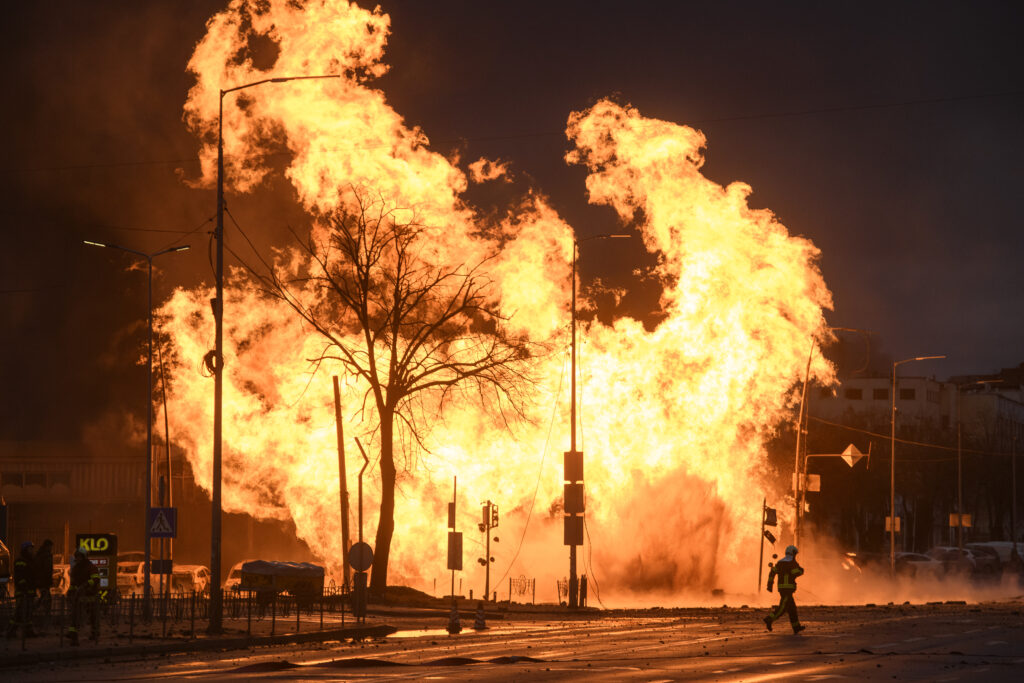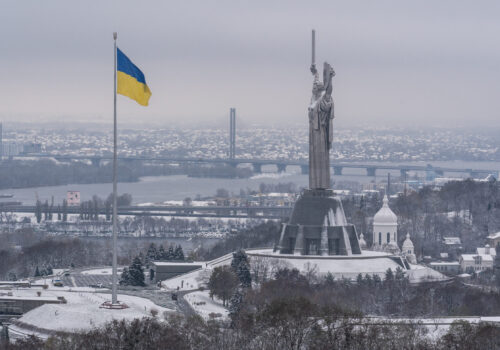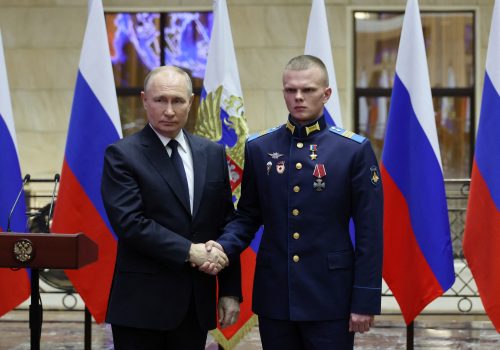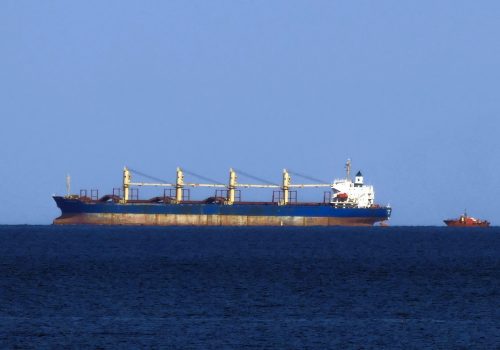Ukrainians spent much of the New Year holiday period in bomb shelters as Russia marked the festive season by unleashing some of the biggest air assaults of the entire war. According to Ukrainian President Volodymyr Zelenskyy, Russia launched at least 500 missiles and drones at targets across Ukraine during a five-day period from December 29, in what was widely regarded as an indication of the Kremlin’s intentions for the coming weeks.
This fresh wave of major air attacks has confirmed the worst fears of many in Ukraine, who have long speculated that Russia was stockpiling missiles for use in a new winter bombing campaign. Moscow is believed to have significantly boosted domestic output of missiles as part of the country’s transition to a wartime economy, with more than 100 long-range missiles reportedly now being produced per month. Speaking on New Year’s Day, Russian President Vladimir Putin vowed to “intensify” Russia’s air war against Ukraine.
Last winter, Russia targeted Ukraine’s civilian energy infrastructure in an attempt to freeze the country into submission. While this five-month bombing campaign led to rolling power blackouts across Ukraine, it ultimately failed to break Ukrainian spirits and was instead credited with strengthening the country’s will to resist Russia’s invasion.
In contrast, Putin’s new bombing offensive appears to have a wider focus, with targets of recent attacks including military and defense industry objects along with residential buildings, hospitals, and shopping malls. The increased targeting of civilians has already led to dozens of deaths. This has sparked suggestions that Russia seeks to undermine Ukrainian morale while also degrading Ukraine’s ability to produce the weapons and ammunition needed to sustain the country’s war effort.
Stay updated
As the world watches the Russian invasion of Ukraine unfold, UkraineAlert delivers the best Atlantic Council expert insight and analysis on Ukraine twice a week directly to your inbox.
Russia’s most immediate objective may be to overwhelm Ukraine’s limited air defense capabilities. Although Ukraine has been able to dramatically enhance its air defense systems since the start of Russia’s full-scale invasion almost two years ago, Kyiv remains heavily reliant on the country’s partners for the resupply of interceptor missiles and other forms of ammunition. With further US and EU military aid currently in question due to political obstacles, there is a very real danger that Ukraine could exhaust its existing stocks of air defense ammunition in the coming weeks.
The consequences of a collapse in Ukraine’s air defenses would be catastrophic. Ukrainian forces have so far outperformed all expectations, incorporating a wide array of air defense systems provided by the country’s international partners. This has enabled them to shoot down an average of around 70 to 80 percent of incoming drones and missiles. However, if ammunition supplies become critically low in late January or early February, senior officials in Kyiv may be forced to concentrate limited resources and effectively leave much of the country undefended. In such circumstances, a single wave of Russian air strikes could easily result in thousands of civilian casualties.
Eurasia Center events

Officials in Kyiv appear well aware of the looming threat and have been actively seeking additional air defense support in recent months. The country received a second Patriot system from Germany in December, and also secured a commitment from Japan to supply Patriot missiles to the United States in a move which may allow the US to hand over further missiles to Ukraine. In the aftermath of Russia’s latest bombardment, Zelenskyy spoke with British Prime Minister Rishi Sunak, with air defense supplies high on the agenda. Britain had earlier responded to Russia’s massive air attack of December 29 by confirming delivery of a further 200 air defense missiles to Ukraine.
While officials in Kyiv welcome this support, they also recognize that much will depend on the outcome of the current political deadlock in Washington DC, where progress on a major new Ukraine aid package has stalled as attention turns toward the 2024 US presidential election. Unless the US Congress can unblock the multi-billion dollar package, the Ukrainian military will face a range of critical shortages including in the air defense arena.
Meanwhile, Russian officials will be hoping that delays and reductions in Western aid, together with their own ample supplies of missiles and drones, will leave Ukrainian cities increasingly vulnerable to attack. The sense of growing confidence in Moscow has been tangible in recent weeks, with Putin vowing to fight on until victory and the Russian Foreign Ministry posting that Ukraine must be “completely denazified and demilitarized,” Kremlin code for the country’s total capitulation and subjugation.
Ultimately, even a dramatic increase in deliveries of air defense systems and ammunition to Ukraine will not be enough to end Russia’s terror bombing campaign. In order to effectively counter the threat posed by Russian drones and missiles, Ukraine must receive long-range missiles of its own, along with the political green light from its partners to strike launch sites and related targets inside Russia. As long as Western leaders insist on restricting Ukraine’s ability to strike back at Russia, Ukrainian commanders will be forced to fight the air war with a shield but no sword.
Peter Dickinson is editor of the Atlantic Council’s UkraineAlert service.
Further reading
The views expressed in UkraineAlert are solely those of the authors and do not necessarily reflect the views of the Atlantic Council, its staff, or its supporters.

The Eurasia Center’s mission is to enhance transatlantic cooperation in promoting stability, democratic values and prosperity in Eurasia, from Eastern Europe and Turkey in the West to the Caucasus, Russia and Central Asia in the East.
Follow us on social media
and support our work
Image: A fire is burning in Kyiv, Ukraine, on January 2, 2024, caused by a Russian missile strike during a massive missile attack this morning. (Photo by Maxym Marusenko/NurPhoto)




